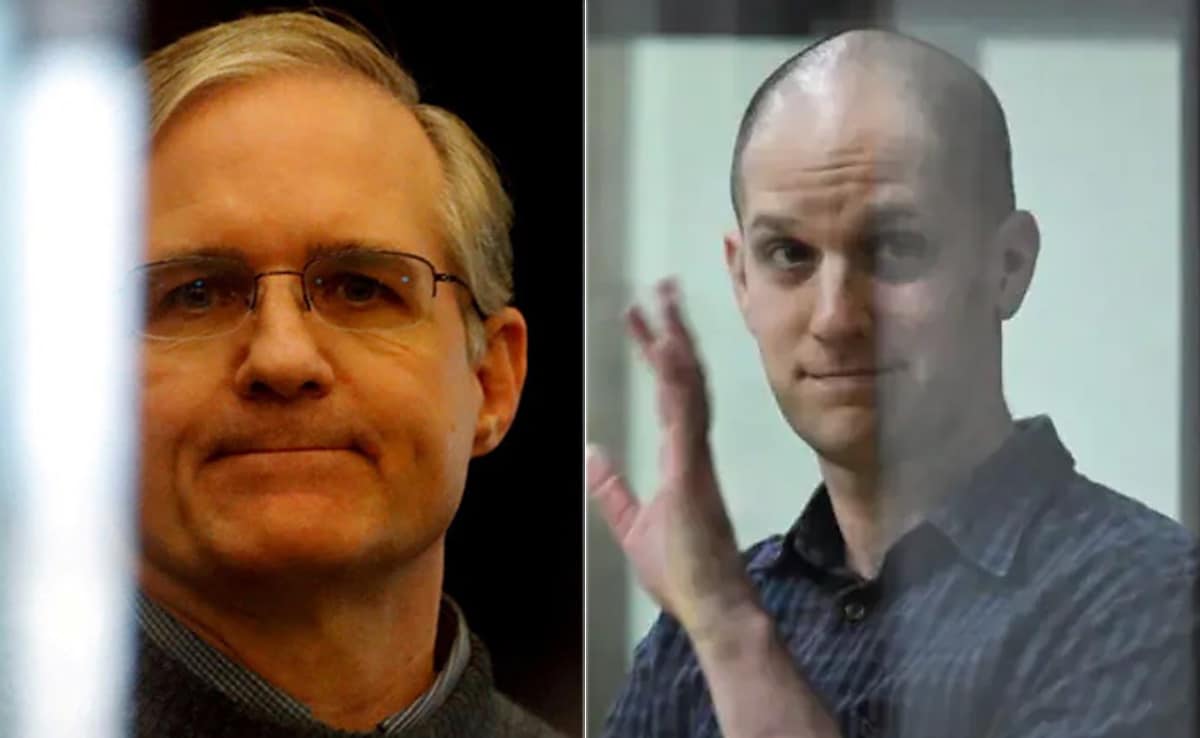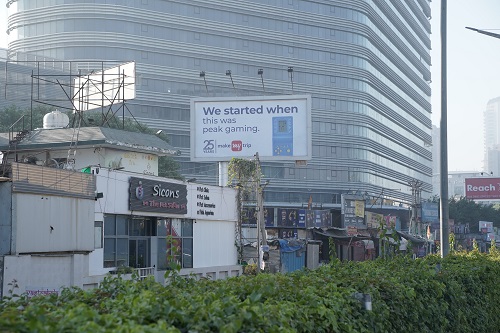Russia and the West have released a total of 24 prisoners in the biggest exchange since the end of the Cold War, officials said on Thursday.
Here’s a snapshot of who has been released:
Freed by Russia
Russia has freed 16 people — US and German citizens, journalists and domestic dissidents:
Evan Gershkovich:
The 32-year-old Wall Street Journal reporter became the first Western journalist to be jailed in Russia for espionage since the Soviet era. He was sentenced to 16 years in a strict penal colony by a Russian court on July 19, after a fast-track trial.
Russia says that he spied on a tank factory in the Urals region and was working for the US Central Intelligence Agency (CIA), but presented no evidence to support its claims, which were dismissed as bogus by the White House and his employer.
Born in the US state of New Jersey to Soviet Jewish emigres he carried on visiting Russia even after dozens of other Western journalists left following Moscow’s Ukraine offensive.
Paul Whelan:
The former US Marine Whelan, 54, who also has British, Irish and Canadian nationalities, has been jailed in Russia since December 2018.
In June 2020 he was sentenced to 16 years in a remote Russian penal colony for espionage.
He was detained in a Moscow hotel in 2018 — allegedly with a cache of classified documents, when he was the security director of a US automotive parts manufacturer.
Alsu Kurmasheva:
US-Russian journalist Kurmasheva, 47, was sentenced to six years and six months on the same day as Gershkovich in an ultra-secret trial, details of which did not emerge until days later.
An editor with the US-funded Radio Free Europe/Radio Liberty outlet, she was accused of violating Russia’s strict military censorship laws and arrested while travelling to Russia from her home in Prague to see her sick mother.
Vladimir Kara-Murza:
Fierce Kremlin critic and journalist Kara-Murza, 42, was in April 2023 handed a 25-year term for condemning Moscow’s campaign in Ukraine, one of the longest prison terms ever handed down to a Putin critic.
A dual British-Russian national, he was arrested in April 2022 after a speech in the United States where he accused Russia of “war crimes” against Ukraine.
Several investigative media outlets, including Bellingcat, The Insider and Der Spiegel, have backed his claim that he was poisoned by security services under orders from the Kremlin — attacks which left him with nerve damage.
In May he won a Pulitzer Prize “for passionate columns written at great person risk from his prison cell.”
Oleg Orlov:
Veteran rights advocate Orlov, 71, was handed a two-and-a-half-year term in February after calling Russia a “fascist” state and criticising its Ukraine campaign.
A biologist by training Orlov was an instrumental figure in Memorial, the Nobel Prize winning human rights organisation disbanded by Russia in late 2021. Under his guidance, Memorial preserved the memory of victims of communist repression and campaigned against rights abuses in modern Russia.
Lilia Chanysheva:
Chanysheva, 42, who once headed late opposition leader Alexei Navalny’s offices in the central Bashkortostan republic, was sentenced to seven and a half years’ prison in June 2023 for having created an “extremist organisation”, a sentence that was later toughened to nine and a half years in April.
An accountant, she had worked for major companies including Deloitte before joining Navalny’s team in 2017, openly protesting corruption in the region.
Ksenia Fadeyeva:
In December 2023 Fadeyeva, 32, who led Navalny’s now-banned organisation in the Siberian city of Tomsk, was sentenced to nine years in prison for “extremism”.
Fadeyeva headed Navalny’s political office in Tomsk, where the opposition leader was poisoned in August 2020 on a visit ahead of elections.
Fadeyeva was elected to the Tomsk city legislature in 2020, a move hailed as a victory for the Russian opposition against President Vladimir Putin’s rule.
Ilya Yashin:
Russian liberal opposition politician Yashin, 41, was handed eight and a half years in late 2022 for denouncing Moscow’s Ukraine offensive.
A former ally of Navalny and assassinated opposition figure Boris Nemtsov, he was imprisoned for having denounced “murders of civilians” in the Ukrainian town of Bucha.
Alexandra Skochilenko:
Artist Skochilenko, 33, from Saint Petersburg, was arrested in April 2022 and then jailed in November 2023 for seven years for replacing supermarket price tags with messages opposing the Ukraine offensive.
She in particular focused on the bloody battle for the Black Sea port city of Mariupol.
Andrei Pivovarov:
Russian opposition activist Pivovarov, 42, headed the Open Russia foundation, bankrolled by former oligarch Mikhail Khodorkovsky, who himself spent a decade in prison for campaigning against Putin.
He was arrested in 2021, hauled off a plane by FSB agents before he could leave the country, and sentenced to four years for collaborating with an “undesirable” organisation.
Rico Krieger:
German citizen Rico Krieger, a 30-year-old medic, was pardoned by Belarusian President Alexander Lukashenko on July 30 after being sentenced to the death penalty on June 24.
Convicted under six articles of Belarus’s criminal code in a secretive trial, he was suspected of photographing military sites in Belarus in October 2023 and placing an explosive device on a railway line near Minsk under Ukrainian orders.
According to a LinkedIn profile Krieger, worked as a medic for the German Red Cross and had previously been employed as an armed security officer for the US embassy in Berlin.
Dieter Voronin:
Joint Russian-German citizen Voronin was sentenced to 13 years in prison on “treason” charges after Moscow alleged he received classified military information from another journalist, Ivan Safronov, who remains behind bars.
Kevin Lick:
Lick, who was arrested aged 17 and is another joint Russian-German citizen, became the youngest person ever convicted of treason in Russia when he was sentenced in 2023 to four years for allegedly sending photos of a Russian military facility visible from his apartment window to German security services.
Patrick Schoebel:
German citizen Schoebel, in his late 30s, was arrested earlier this year at Saint Petersburg airport after customs officials found cannabis gummy bears in his luggage.
German Moyzhes:
Moyzhes, a Russian-German migration lawyer, was facing treason charges after he was arrested in Saint Petersburg in May, according to Russian state media.
Almost no details of the case against him had been made public. Moyzhes was well known in Saint Petersburg as an urban activist and pro-cycle campaigner.
Vadim Ostanin:
The former head of another of Navalny’s regional branches, Ostanin was sentenced in 2023 to nine years in prison for participating in an “extremist” organisation.
Freed by the West
The United States, Germany, Slovenia, Poland and Norway freed a total of eight people as part of the deal, including alleged spies, hitmen and hackers.
Vadim Krasikov:
Krasikov, an alleged FSB hitman, was sentenced to life in prison in Germany for gunning down a former Chechen separatist in a Berlin Park in 2019.
German judges said the murder was ordered by the Russian state, and the Bellingcat investigative media outlet has linked Krasikov to a secret elite unit of Russia’s FSB state security services.
Through his lawyer, Krasikov claimed he had been misidentified and was a Russian construction engineer. Earlier this year Putin, without naming him specifically, said he wanted a Russian “patriot” who had “eliminated a bandit” in a “European capital” freed from prison.
Artem Dultsev and Anna Dultseva:
Slovenia sentenced Dultsev and Dultseva, both 40, to more than a year and half in prison for “spying and falsifying documents.”
The pair, alleged Russian secret agents, were living undercover on Argentine passports in the capital Ljubljana, where authorities said they ran an art gallery as part of their cover.
Mikhail Mikushin:
Mikushin, born in 1978, was arrested in Norway in 2022 and accused of posing as a Brazilian researcher at a university in Tromso.
The Bellingcat investigative outlet said he was a colonel in Russia’s GRU military intelligence services and Norwegian media reported that he did not speak Portuguese, Brazil’s national language.
Pavel Rubtsov:
Polish intelligence alleged Rubtsov, a Russian-born Spanish freelance journalist in Spain, was an agent for Russia’s GRU military intelligence service.
Living as Pablo Gonzalez, he was arrested near the Polish border with Ukraine just four days after Russia launched its offensive in February 2022.
He was born in Moscow but moved to Spain at the age of nine and obtained Spanish nationality.
Roman Seleznev:
Seleznev, the son of a Russian lawmaker, was convicted of a string of cybercrimes in the United States, including a 27-year prison sentence for hacking into card payment terminals to steal millions of credit card details.
US officials called his “criminal enterprise … both sophisticated and expansive, with transnational implications.” Dubbed a master hacker, he was arrested in 2014 in the Maldives.
Vladislav Klyushin:
Another Russian convicted of hacking crimes, Klyushin, was sentenced in 2023 to nine years in prison for netting almost $100 million by hacking into corporate systems and then illegally trading shares using the information he had gathered.
Vadim Konoshchenok:
The US Justice Department says Konoshchenok, who it alleges has “ties to Russia’s FSB”, was a key figure in a scheme to provide US-made ammunition and electronics to Russia to support its offensive in Ukraine.














